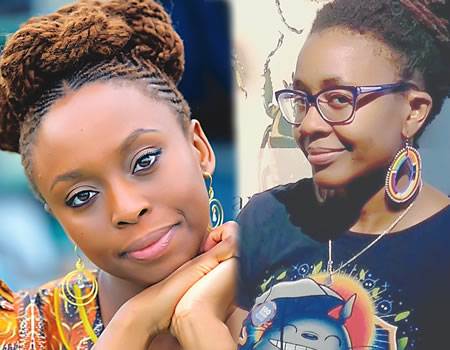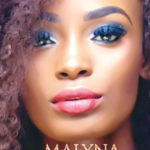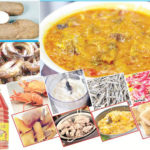Indeed, the road to success is paved with determination, grit and self-belief; and success definitely did not come on a silver platter for the finest and internationally-recognised female Nigerian literary icons, Chimamanda Ngozi Adichie and Nnedi Okorafor, who have just been longlisted for the Alternative Nobel Prize for Literature awarded by the New Academy.
With their names on that list, they have made Nigerians proud and have proved to the world that Africans, just like the Americans and the Europeans, are relevant in the global literary world.
The New Academy (though has no connection with the Swedish Academy) is a non-profit organisation based in Sweden.
Following the news that the 2018 Nobel Literature Prize had been cancelled due to the corruption and sex scandal rocking the Swedish Academy that awards the prize, some Swedish librarians and cultural figures headed by journalist Alexandra Pascalidou decided to bestow their own version of the world’s most prestigious literary prize.
This they did as an act of protest to the corruption and scandal that has embarrassed the Swedish Academy.
“In awarding this prize, we are staging a protest. We want to show people that cultural work does not have to occur in a context of coercive language, irregularities and abuse,” they said.
According to its founders, the New Academy was formed to remind people that literature and culture should promote democracy and transparency without bias and sexism.
“In a time when human values are increasingly being called to question, literature becomes an even more important counterforce to stop the culture of silence and oppression.
“The New Academy regards this as so important that the world’s greatest literature prize should still be awarded in 2018,” the New Academy said.
To say that Adichie and Okorafor were merely lucky to have made it to the longlist would be erroneous. Out of the 155 authors that were recommended by librarians across Sweden, these two female Nigerian writers made it on the 47-name longlist.
On the list, they are the only Nigerians – and the only female writers from Africa! The Kenyan writer, Ngugi wa Thiong’o, is the only man from Africa on the list, which makes it a total of three African writers on the list.
To be considered for the Alternative Nobel Prize, which past Nobel laureates are not allowed to contest, an author must be a “writer of literary fiction who within the reader has entered the story of mankind in the world,” the New Academy stated.
They also need to have two published works, one of which must be in the last 10 years.
With these requirements, Adichie and Okorafor are qualified for the prize given the quality of the numerous works of fiction they have turned out, and the international awards and honours they have amassed from their works.
According to some reports, the names on the list could not be more different from the ones that were in circulation as the annual Nobel Literature Prize season was rounding up. This means that Adichie’s or Okorafor’s name would probably be in the 2019 Nobel Literature Prize list.
An analysis of the longlist reveals that they are 30 women and 17 men. Sweden and the United Sates have the most nominated authors with 12 authors each. United Kingdom is in the third place with five authors.
Nnedi Okorafor is among the US nominees. Though she is a Nigerian born of two immigrant Igbo parents, she was nominated for US because she was born there. That notwithstanding. She has been visiting Nigeria since she was young.
The 41-year-old Nigeria-born novelist, short story and nonfiction writer Chimamanda Ngozi Adichie, is arguably the most popular and influential African writer today.
A graduate of Eastern Connecticut State University (2001), John Hopkins University (2003) and Yale University (2008), she has been praised as the most prominent and the most critically acclaimed young Anglophone author.
The Washington Post Book World had described her as “the 21st-century daughter of that other great Igbo novelist, Chinua Achebe.”
Her Purple Hibiscus (2003), Half of a Yellow Sun (2006), The Thing Around Your Neck (2009), Americanah (2013), her nonfiction Dear Ijeawele, or a Feminist Manifesto in Fifteen Suggestions (2017) and her numerous short stories have won her prestigious awards.
Some of these awards include, but not limited to, Commonwealth Writers’ Prize, National Book Critics Circle Award, Orange Prize, Booker Prize, International Nonino Prize, Chicago Heartland Prize, and many more.
Her TED talks The Danger of a Single Story (2009) and We Should All Be Feminists (2012) have not only made her more popular than her contemporaries, but have also placed her under intense criticisms.
Adichie has, no doubt, written her name in the sands of time.
Nnedi Okorafor, on the other hand, is a woman of substance and a writer of international repute. The 44-year old Nigerian-American writer, professor and lover of insects, started writing small stories in the margins of a science fiction book.
Well known as a track and a tennis star in her high schools, she had wanted to be an entomologist due to her love for insects. But as providence would have it, she ended up being a writer and an English teacher at the University at Buffalo, New York.
A graduate of the University of Illinois, Urban-Champaign (BA), Michigan State University (MA), and University of Illinois, Chicago (MA and PhD), Okorafor has been described as the finest writer of fantasy and science fiction for both children and adults.
Her copious short stories, novellas and novels have not only brought her to the limelight, but have also earned her the highest rank in the academia.
Her children books include Long Juju Man (2009) and Iridessa and the Secret of the Never Mine (2012). Some of her young adult books include Zahrah the Windseeker (2005), The Shadow Speaker (2007), Akata Warrior (2017), among others.
Her adult books include, but not limited to, Who Fears Death (2010), Hello, Motto (2011), Moom!(2011), Kabu Kabu (2013) and Lagoon (2014).
Of course, her Binti trilogy cannot be forgotten: Binti (2015), Binti 2: Home (2017) and Binti: The Night Masquerade (2018). These books and more have won her a lot of prizes and awards such as the Macmillan Writer’s Prize for Africa, Carl Brandon Parallax Award, the Wole Soyinka Prize, the Kindred Prize, the Nebula Award, the World Fantasy Award, the Hugo Award for Best Novella, among others.
Okorafor has no doubt immortalised herself in the literary world.
The track records of Adichie and Okorafor are so glaring that the New Academy could not miss them. Their works and contributions in arts, literature, social and cultural landscape of Nigeria and Africa at large speak volume. Their names on the Alternative Nobel Prize is an indication that they have judiciously sustained and even increased the momentum their literary mothers and grandmother like Flora Nwapa, Mabel Segun and Buchi Emebeta set many decades ago.
It has also distinguished them as role models and great achievers whose success stories are worthy of emulation by Nigerian and African women writers and non-writers.
Given the fact that there are more women than men on the Alternative Nobel Prize longlist, and the good news that the voting process is open and transparent, unlike the Nobel Literature Prize secretive selection process and questionable history of 14 female winners out of 114 laureates, there are chances that a female writer might win the Alternative Nobel Prize.
The voting process, which is online, will close on August 14th, after which the longlist will be reduced to two men and two women.
To vote for any of the nominees, all that is required is your email address. The voting website is: https://dennyaakademien.wishpondpages.com/literature-prize_2018/.
The winner of the prize will be announced on October 14th, after which the award ceremony will be held on December 10th, the same time of the year Nobel Prize holds its award ceremony.
It is expected that the Swedish Academy will announce two winners for the Nobel Literature Prize in 2019. Given the unmistakable track records of Adichie and Okorafor, and the singular fact the they successfully made it to the Alternative Nobel Prize, one could be optimistic that one, if not both of them, would be nominated for the Nobel Literature Prize next year.
And who knows, come 2019, one of them might just be the second Nigerian Nobel laureate. Wole Soyinka himself would not agree less.
WATCH TOP VIDEOS FROM NIGERIAN TRIBUNE TV
- Let’s Talk About SELF-AWARENESS
- Is Your Confidence Mistaken for Pride? Let’s talk about it
- Is Etiquette About Perfection…Or Just Not Being Rude?
- Top Psychologist Reveal 3 Signs You’re Struggling With Imposter Syndrome
- Do You Pick Up Work-Related Calls at Midnight or Never? Let’s Talk About Boundaries






